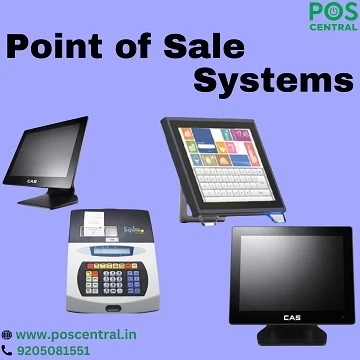Integrating Point of Sale (POS) systems with e-commerce platforms is becoming increasingly essential for businesses aiming to streamline their operations and enhance the customer experience. Whether you run a retail store, a restaurant, or a hospital, understanding how to effectively integrate these systems can significantly impact your efficiency and profitability. Here’s what you need to know about integrating POS systems with e-commerce platforms.
Understanding POS Systems
They are more than just cash registers; they are comprehensive tools that manage sales, inventory, customer data, and more. In the context of e-commerce, point of sale systems help unify online and offline sales channels, offering a seamless experience for both the business and its customers.
Advantages of Integrating POS Systems with E-commerce Platforms
Unified Inventory Management: Integration allows businesses to maintain a single inventory system across both physical and online stores. This helps prevent overselling and ensures that stock levels are always accurate.Enhanced Customer Experience: With integrated systems, customer data from in-store and online purchases is consolidated. This enables businesses to provide personalized shopping experiences and improve customer satisfaction.Streamlined Operations: Integration reduces manual data entry, minimizes errors, and saves time. Automated synchronization of sales data, inventory levels, and customer information leads to more efficient business operations.Real-Time Data and Analytics: Integrated POS systems offer real-time insights into sales performance, inventory status, and customer behaviour. This data is crucial for making informed business decisions and strategizing effectively.Key Considerations for Integration
When integrating POS systems with e-commerce platforms, several factors must be considered to ensure a smooth and successful implementation.
Compatibility: Ensure that the POS system and the e-commerce platform are compatible. Some systems are designed to work seamlessly with specific e-commerce platforms, while others may require additional software or custom integration.Scalability: Pick a system that can expand as your business grows. As your business grows, your POS and e-commerce integration should be able to manage more sales and new features.Data Security: Protecting customer data is paramount. Ensure that both the POS system and the e-commerce platform adhere to the highest security standards to safeguard sensitive information.User-Friendly Interface: The integration should offer an intuitive interface for both employees and customers. Easy-to-use systems reduce training time and improve overall efficiency.Support and Maintenance: Opt for a solution that provides robust customer support and regular updates. Reliable support makes sure any problems are quickly fixed, reducing downtime.Integrating POS Systems in Different Industries
Retail Point of Sale Systems
For retail businesses, integrating POS systems with e-commerce platforms helps manage inventory across multiple locations, streamline checkout processes, and enhance customer loyalty programs. Retail point of sale system offers features like barcode scanning, sales tracking, and customer relationship management.
Point of Sale Systems for Restaurants
Restaurants benefit from integrating POS systems with online ordering platforms. This integration allows for seamless order management, accurate inventory tracking (including perishables), and improved customer service. Point of sale systems for restaurants can handle table reservations, order customizations, and split billing.
Point of Sale Systems for Hospitals
In healthcare settings, integrating POS systems with e-commerce platforms can streamline billing, manage patient records, and track the inventory of medical supplies. Point of sale systems for hospitals ensure that financial transactions and patient data are accurately recorded and easily accessible.
Best Practices for Integration
Plan Thoroughly: Before integrating, map out your business processes and identify how the POS system and e-commerce platform will interact. Define clear goals and objectives for the integration.Test Rigorously: Conduct thorough testing to ensure that the integration works as intended. Test all functionalities, including inventory updates, sales transactions, and data synchronization.Train Staff: Provide comprehensive training for your staff to ensure they are comfortable using the new system. Training should cover all aspects of the integration, from basic operations to troubleshooting common issues.Monitor and Optimize: After integration, continuously monitor the system's performance. Gather feedback from staff and customers to identify areas for improvement and optimize the system accordingly.Integrating POS systems with e-commerce platforms offers numerous benefits, from unified inventory management to enhanced customer experiences. By carefully considering compatibility, scalability, data security, and user-friendliness, businesses can successfully implement an integrated system that streamlines operations and drives growth. Whether you're managing a retail store, a restaurant, or a hospital, choosing the right point-of-sale system is crucial for maximizing the advantages of integration. For more information and to explore the best POS systems in India, visit POS Central India.


